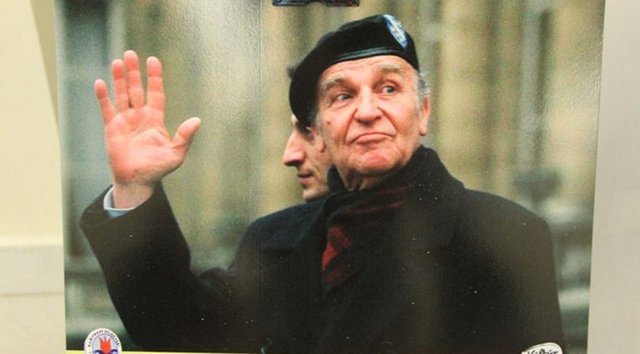Alija Izetbegovic, the first president of the Bosnia-Herzegovina, was a Bosnian activist who ruled the nation during one of the bloodiest phases of its history. Born into an aristocratic but impoverished family, he moved to Sarajevo, which later became the center of his political activities. After being part of many political organizations, his political growth was on the rise after he formed the ‘Party of Democratic Action’ and was elected as the President of the country. However, what followed was intense political turmoil which included the fallout of the Kingdom of Yugoslavia. Despite numerous peace efforts, he could not stop a bloody war which extended for four years between the various ethnic groups. This mild-mannered Muslim leader spent half of his presidency in fighting for the survival of his own country. Later, backstabbed by the other Muslim leaders and facing contempt of the western leaders, he was also partly blamed for the civil war which rocked the Balkans. However, the thousands of mourners who attended his funeral and the letters of condolences, which flooded Bosnia from the leaders of almost 80 countries after his death, bears testimony to the fact that he was one of the most loved and respected European Muslim leaders in the world.
CAREER
When the Mladi Muslimani had to choose between the SS Handschar (a SS Mountain Division of Nazi Germany including Bosniaks) and the Partisans (a Communist resistance group led by Josip Broz Tito), Izetbegovic supported the SS division.
In 1946, after the war, he was arrested for his activities during the course of war and was sentenced to three years of imprisonment.
After being free, he obtained a law degree from Sarajevo University and remained in active politics.
In 1970’s, Izetbegovic published a manifesto titled, ‘Islamic Declaration’, which expressed his views on relationships between Islam, society and state. The authorities interpreted this manifesto as a call to introduce sharia Law in Bosnia and barred its publication.
The declarations still remains controversial and the passages from the declaration were often quoted by the opponents of Izetbegovic as an open call to Islamic fundamentalism. Izetbegovic denied all the allegations.
Izetbegovic authored one of his prominent works, ‘Islam between East and West’ in 1980.
In 1983, Izetbegovic along with his other Bosniak activists were tried for indulging in hostile activities, spreading hostile propaganda and making a visit to the Muslim congress in Iran. They were sentenced to fourteen years of imprisonment.
However, following persistent requests from human rights organizations like Amnesty International and Helsinki Watch, the Bosnian Supreme Court reduced the sentence of Izetbegovic to twelve years.
In 1988, he was pardoned and released after five years though the imprisonment cost his health dearly.
In 1989, Izetbegovic and other Bosnian activists established a political party ‘Party of Democratic Action’. Following this, the ethnic groups in Bosnia, Serbs and Croats also established their own ethnically-based parties.
In the general election that followed, Alija Izetbegovic’s Democratic Action Party won the majority of the seats and Alija Izetbegovic was elected as the President of Bosnia-Herzegovina.
In 1991, the Kingdom of Yugoslavia which included Bosnia and Herzegovina, Croatia, Macedonia, Montenegro, Slovenia and Serbia (autonomous provinces of Vojvodina and Kosovo) fell apart with Slovenia, Serbia, Croatia, and Macedonia declaring independence. It was followed by a bloody war which went on till 1994 despite several peace attempts made by Izetbegovic.
Izetbegovic’s strong relationship with Iran resulted in the latter providing arms and ammunitions to Bosnian. Muslims the militants recruited by Iran even entered Bosnia to fight Serbs and Croats.
In 1995, Izetbegovic along with his enemies were persuaded by the international community to take part in peace talks held at Wright-Patterson Air Force Base near Dayton, Ohio. There, they agreed to end the war with the NATO peace keeping team was given the responsibility of maintaining the cease fire. Izetbegovic became the Member President of Presidency of Bosnia and Herzegovina.
The power of his party decreased after a High Representative was sent to look after the affairs of the state by the international community. It enjoyed more power than the presidents.
In October 2000, Izetbegovic announced his retirement at the age of 74 due to bad health.